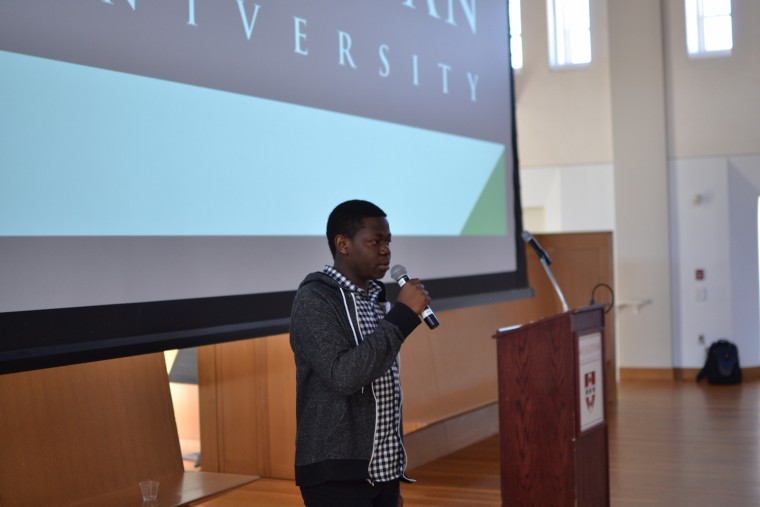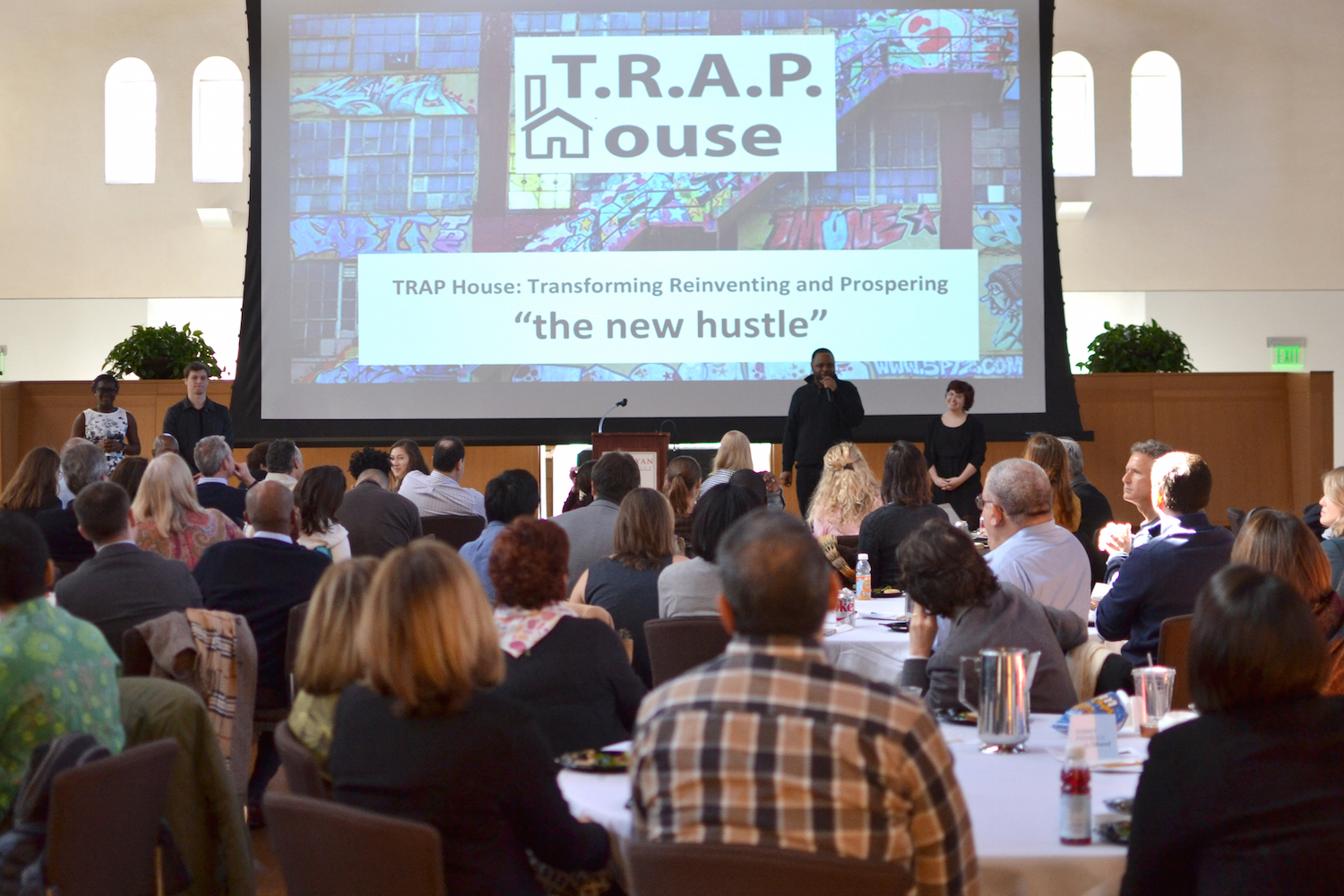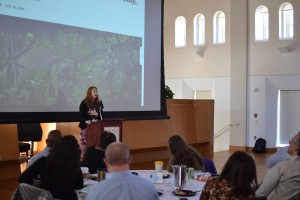2016 Patricelli Center Seed Grant Winners Announced


Three social ventures started by Wesleyan students were recently awarded $5,000 seed grants in the Patricelli Center for Social Entrepreneurship’s annual Seed Grant Challenge. They are Kindergarten Kickstart, TRAP House and Walking Elephants Home.
The last weekend in February, all six finalists for the seed grants presented pitches for their ventures before the Board of Trustees, Patricelli Center Advisory Board and Seed Grant judges, as well as representatives of CT Innovations and the State of Connecticut Department of Economic and Community Development, fellow students, and others. The event was also livestreamed. One of the other finalists, <Zim/Code>, chose to withdraw from the Seed Grant competition before selections were made, after the project received $10,000 from another funder.
The remaining finalists, Give Education and Pertiwi Initiative, were awarded smaller runner-up grants funded by members of the Board of Trustees who attended the pitches and believed all six teams were worthy of validation.
“This was the third year that we awarded seed grants in a pitch competition format,” said Makaela Kingsley, director of the Patricelli Center for Social Entrepreneurship. “I am always blown away by the finalists, and this year was no exception. From Becca Winkler’s thorough understanding of the environmental and cultural conditions in northern Thailand to Irvine Peck’s-Agaya’s deep personal commitment to her economic development work, every person who took that stage captured the audience’s attention and garnered their support. More than launching ventures, this process helps students develop creative competence and confidence that will make them effective changemakers and capable leaders. I believe it’s a critical piece of a Wesleyan education.”
Brief descriptions of all the organizations follow:
Kindergarten Kickstart–Stephanie Blumenstock ’16, Meg Narwold ’16 and Natalie May ’18
Kindergarten Kickstart is an innovative research-based, summer pre-K program for children in Middletown who could benefit from extra preschool experience before beginning kindergarten. Through a partnership between university-based research labs, Middletown Public Schools and local community organizations, Kindergarten Kickstart aims to bridge the research-to-practice gap and improve participants’ school readiness skills through a short-term, high-impact, low-cost preschool program.
TRAP House–Bashaun Brown (former student in Wesleyan’s Center for Prison Education), Sara Eismont ’18, Irvine Peck’s-Agaya ’18 and Gabe Weinreb ’18
TRAP House is a startup incubator that operates in neighborhoods with high rates of drug activity. TRAP stands for Transforming, Reinventing, And Prospering. Recognizing that hustlers are entrepreneurs starved of opportunity,TRAP House helps them recognize their talents, identify their passions and launch micro-ventures in the formal market by providing the financing, technical assistance and networks they need to succeed.

Walking Elephants Home–Becca Winkler ’16
The Mahouts Elephant Foundation (MEF) is a non-profit that supports elephants and their Karen mahouts (owners) in Thailand. The goal of Walking Elephants Home is to collaborate with indigenous people and prove that alternative forms of ethical tourism are possible through a business model that allows mahouts who free their elephants to earn a better income through sustainable ecotourism. Returning elephants to their natural habitat not only drastically improves their well-being but also enhances biodiversity and prevents further deforestation.
Give Education–Hannah Brigham ’17
Many children in Cambodia are forced to drop out of school in order to support their families. But if a sponsor were found to match the income that the child would be able to earn, they would be able to remain in school. All it takes is $25 a month to change a child’s life.
Pertiwi Initiative–Eki Ramadhan ’16, Josephine Ho ’16, Aqila Putri ’18, Denisa Arsyah and Mayvita Dewi
Pertiwi Initiative strives to address a waste issue in the marine environment of Kepulauan Seribu in Indonesia by utilizing an environmentally and financially sustainable model of decentralized waste bank. This model will allow participants to manage solid waste more efficiently while receiving economic benefits. The Pertiwi Initiative also works to empower women by expanding the access to opportunities that allow them to have more active roles in the community and economy.

<Zim/Code>–Alvin Chitena ’19
The aim of <Zim/Code> is to provide disadvantaged Zimbabwean youths free access to the resources they need to learn how to program and apply their newly learned skills in their communities. Through this project, they will learn the fundamentals of programming and use code to come up with solutions to socio-economic problems that Zimbabwe faces.
(Photos by Will Barr ’18)

